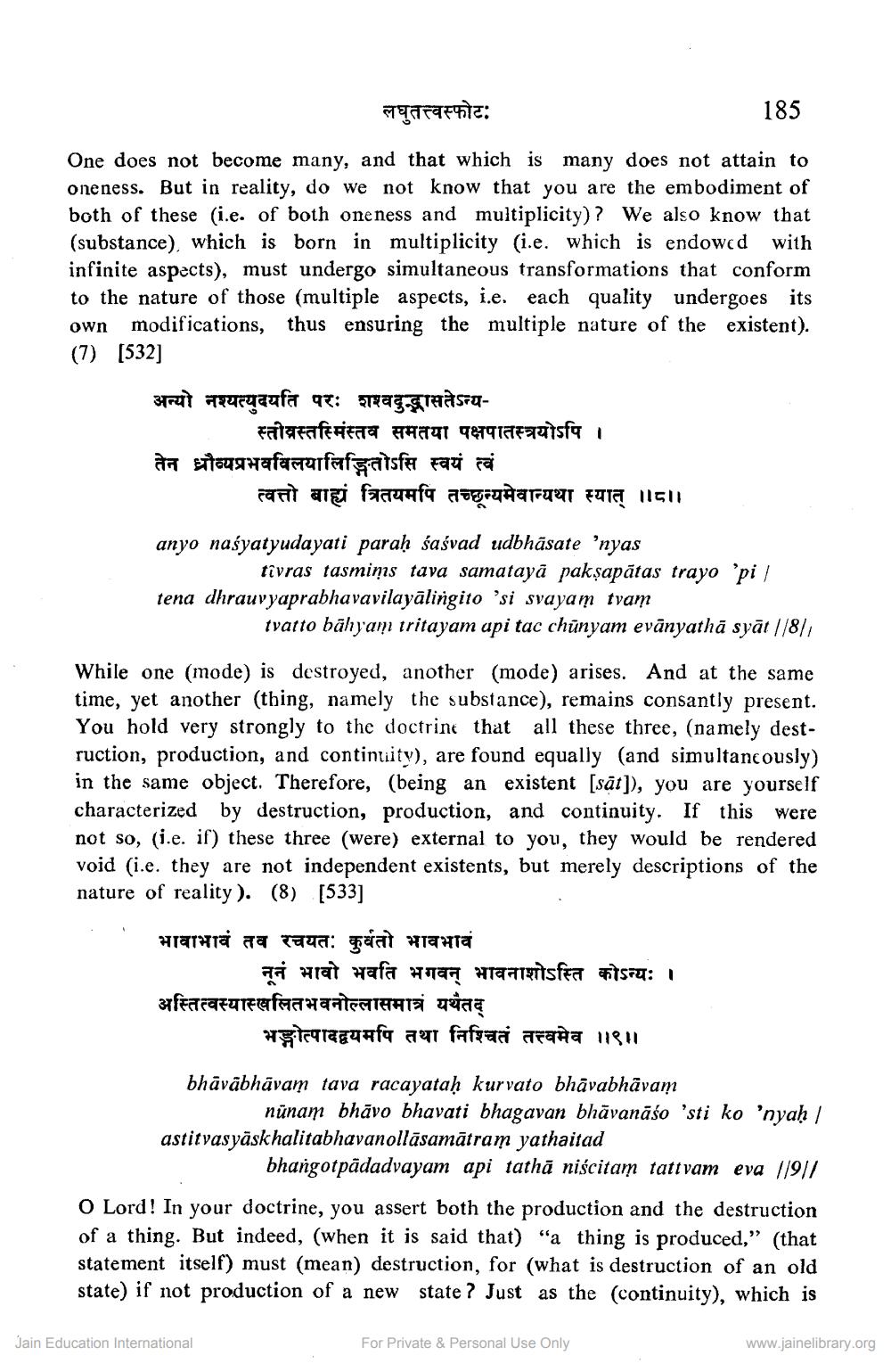________________
लघुतत्त्वस्फोट:
185
One does not become many, and that which is many does not attain to oneness. But in reality, do we not know that you are the embodiment of both of these i.e. of both oneness and multiplicity)? We also know that (substance), which is born in multiplicity (i.e. which is endowed with infinite aspects), must undergo simultaneous transformations that conform to the nature of those (multiple aspects, i.e. each quality undergoes its own modifications, thus ensuring the multiple nature of the existent). (7) (532]
अन्यो नश्यत्युदयति परः शश्वदुद्भासतेऽन्य
स्तीवस्तस्मिंस्तव समतया पक्षपातस्त्रयोऽपि । तेन ध्रौव्यप्रभवविलयालिङ्गितोऽसि स्वयं त्वं
त्वत्तो बाह्यं त्रितयमपि तच्छून्यमेवान्यथा स्यात् ॥८॥
anyo naśyat yudayati parah Śaśvad udbhāsate 'nyas
tîvras tasmiņs tava samatayā pakşapātas trayo 'pi / tena dhrauvyaprabhavavilayālingito 'si svayam tvam
tvatto bāhyam tritayam api tac chūnyam evānyathā syāt |/8/1
While one (mode) is destroyed, another mode) arises. And at the same time, yet another (thing, namely the substance), remains consantly present. You hold very strongly to the doctrint that all these three, (namely destruction, production, and continuity), are found equally (and simultancously) in the same object. Therefore, (being an existent [sāt]), you are yourself characterized by destruction, production, and continuity. If this were not so, (i.e. if) these three (were) external to you, they would be rendered void (i.e. they are not independent existents, but merely descriptions of the nature of reality). (8) [533]
भावाभावं तव रचयतः कुर्वतो भावभावं
नूनं भावो भवति भगवन् भावनाशोऽस्ति कोऽन्यः । अस्तित्वस्यास्खलितभवनोल्लासमात्रं यथैतद्
भङ्गोत्पादद्वयमपि तथा निश्चितं तत्त्वमेव ॥९॥
bhāvābhāvam tava racayataḥ kurvato bhāvabhāvam
nünam bhāvo bhavati bhagavan bhāvanāso 'sti ko 'nyah / astitvas yaskhalitabhavanollāsamātram yathaitad
bhangot pādadvayam api tathā niscitam tatt vam eva //9//
O Lord! In your doctrine, you assert both the production and the destruction of a thing. But indeed, (when it is said that) "a thing is produced,” (that statement itself) must (mean) destruction, for (what is destruction of an old state) if not production of a new state ? Just as the continuity), which is
Jain Education International
For Private & Personal Use Only
www.jainelibrary.org




